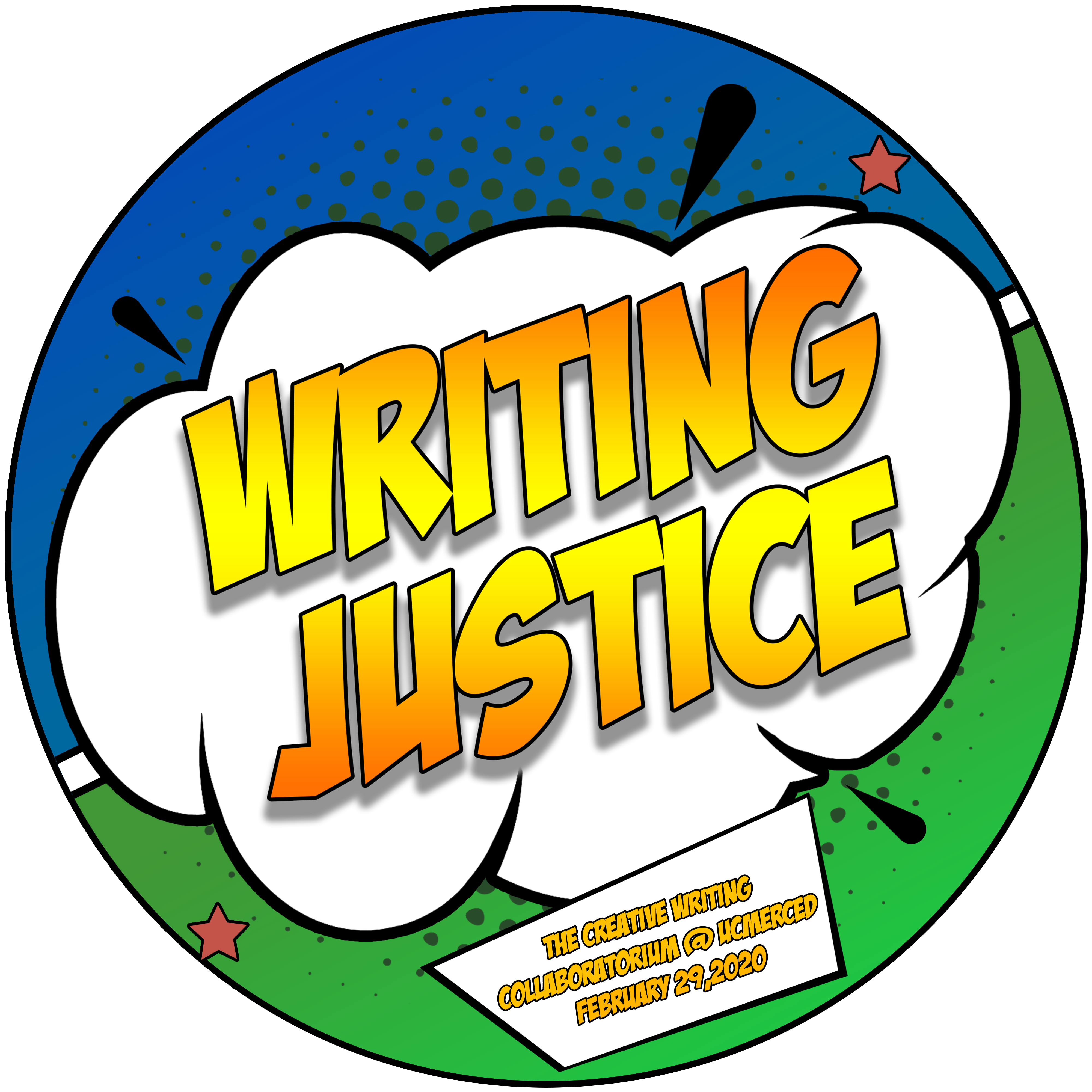 Morning Workshops (10:15am-11:45am)
Morning Workshops (10:15am-11:45am)
“Citizen Versions Zero-Z” –Sue Varnot (UC Merced)
How do we fit into the landscape – as people, as participants, and as writers? This workshop will explore identity and how we both create and are products of the world and others. We will examine the dynamics of place, identity, and persona and write original multi-genre pieces that celebrate and interrogate identity.
“My Body is My Country: Personal Sovereignty, Sensual Ethnography, and the Practice of Creative Writing” –Rodney Chabikwa (GAMWS, UC Merced)
A somatic workshop for writers. Sensory and somatic awareness are resources for creative writing. The body lies at the intersection of Rhythm, Breath, and the Word. The body is articulate. Do my words evoke or invoke embodied experience? How does my writing change through somatization of risk and reterritorialize notions of justice? We will write a character study that is grounded in the experience of the body.
"Poetic Justice: Writing Environmental Poetry" – Samantha Tetangco (UC Merced) & Randi Beck (Community)
In this workshop, we will explore how poetry can bring awareness to environmental issues that impact our lives on a personal, local, and global scale. We will draw on individual experience, mindful observation of nature, and scientific research as creative source materials. Together, we will engage in exercises that will help deepen our writing practice and (hopefully) increase our appreciation of the world and each other.
“Setting as Character: How Writing Diversity is More Than Just Writing Persona” – Yvonne de la Cruz Sanchez (Modesto Junior College)
When including diversity in fiction, the focus usually gravitates to a character’s unique background and culture. Setting tends to be perceived as a mere physical element the characters inhabit. However, writing diversity is much more than this. Setting not only provides a place for characters; it yields an atmosphere that implicitly allows the nature of a character’s background and culture to become a bigger part of the story. In this workshop, we will look at examples of setting in stories that promote cultural diversity, and we’ll engage in exercises that help expand our understanding of setting as diverse character.
“Writing Through Fire: Writing Justice and Poetics” – Marisol Baca (keynote speaker, Fresno City College)
This workshop will be generative and we will investigate our voices and uncover paths through difficult terrain.
Afternoon Workshops (1:15pm-2:45pm)
“Community-Engaged Performance” –Dawn Trook (UC Merced)
In this workshop, we will learn methods of creating plays based on community members challenges and joys, as a way to bring voice to those who don't always feel that they have a voice and to create awareness of the needs of the community. Using current news articles, historical documents, and on-site interviews, we will write and create collaborative performance pieces.
“Creative Narrative Case Studies for Social Justice” – Christa Fraser (UC Merced)
In this workshop, we will examine several narrative case studies and then write our own, focusing on personally significant issues around the idea of justice. After a brief discussion on the power of combining appeals of logic, emotion, credibility and worldview, we'll craft our own compelling social and restorative justice narratives, examining how to include and integrate complementary and informative visual elements, such as statistics and infographics. Finally, we will share our work, time permitting. Laptops required.
“It’s the End (or is it?) of the World as We Know it: Exploring Justice in Dystopian YA” – Jessica Santillan & Liz Scheid (UC Merced)
Dystopian YA fiction can help us critique and seek justice in our society. In this workshop, we will identify a current injustice and build a world and characters that offers commentary on this issue.
“The Political Lyric” – Liz Cunningham (UC Merced)
T.S. Eliot once defined the lyric mode as “the voice of the poet talking to [themselves]—or to nobody." What might a public, political lyric address look like? In this workshop, we'll consider political lyric work by contemporary poets, and craft our own lyric poems in service of civic engagement.
“Writing Yourself Into the Literary Canon” –Loretta Kennedy (UC Merced)
This workshop is inspired by the Association of College & Research Libraries’ (ACRL) “Framework for Information Literacy,” focusing on the framework “Authority is Constructed and Contextual.” Students will revise their relationship with the writer, story, and historical and cultural contexts in which it was written. This exercise will challenge students’ belief they don’t have authority to revise a story from the literary canons. Students will also practice entering the privileged discourse community.
REGISTER HERE
Back to Collaboratorium Home

